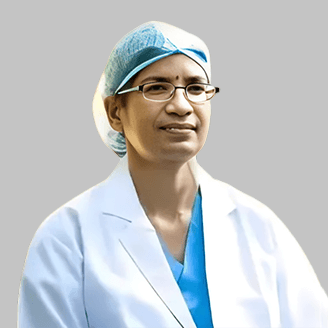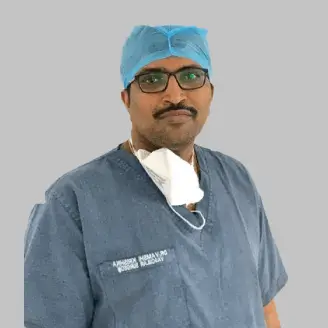-
Doctors
-
Specialities & Treatments
Centre of Excellence
Specialties
Treatments and Procedures
Hospitals & Directions HyderabadCARE Hospitals, Banjara Hills CARE Outpatient Centre, Banjara Hills CARE Hospitals, HITEC City CARE Hospitals, Nampally Gurunanak CARE Hospitals, Musheerabad CARE Hospitals Outpatient Centre, HITEC City CARE Hospitals, Malakpet
HyderabadCARE Hospitals, Banjara Hills CARE Outpatient Centre, Banjara Hills CARE Hospitals, HITEC City CARE Hospitals, Nampally Gurunanak CARE Hospitals, Musheerabad CARE Hospitals Outpatient Centre, HITEC City CARE Hospitals, Malakpet Raipur
Raipur
 Bhubaneswar
Bhubaneswar Visakhapatnam
Visakhapatnam
 Nagpur
Nagpur
 Indore
Indore
 Chh. Sambhajinagar
Chh. SambhajinagarClinics & Medical Centers
Book an AppointmentContact Us
Online Lab Reports
Book an Appointment
Consult Super-Specialist Doctors at CARE Hospitals

Vascular Malformations
Vascular Malformations
Vascular Malformation Treatment in Hyderabad, India
Vascular malformations are the problems of vessels that may be present from birth. The problem may occur in veins, in lymph vessels, or both in veins and lymph vessels, or both in arteries and veins. If only veins are involved it is called venous malformation, if only lymph vessels are involved it is called lymphatic malformations, if both veins and lymph vessels are involved it is called venolymphatic malformations, if arteries and veins are involved it is called arteriovenous malformations. You may not experience any symptoms but may get triggered during adolescence, some major surgery, injury or trauma, or during pregnancy. It is important to diagnose the type of malformations for proper treatment. CARE Hospitals provide the best diagnosis and treatment for all types of vascular malformations.
Types of vascular malformations
There are different types of vascular malformations. The common types of vascular malformations are:
- Capillary Vascular Malformation (Port-Wine Stains): Also known as port-wine stains, these malformations specifically involve capillaries. They result in the development of distinctive, flat, reddish-purple birthmarks on the skin.
- Venous Malformation (Veins): Venous malformations exclusively affect veins. These abnormalities in the venous system can lead to the formation of masses or lesions, causing symptoms such as pain or swelling.
- Lymphatic Malformations (Lymph Vessels): Limited to lymph vessels, lymphatic malformations form fluid-filled cysts. They commonly occur in soft tissues, such as the face, neck, or axillary regions.
- Arteriovenous Malformation (Arteries and Veins): Arteriovenous malformations involve both arteries and veins. The abnormal connection between these blood vessels, bypassing capillaries, can lead to various complications depending on the affected area, such as the brain or spine.
- Haemangiomas: Haemangiomas are noncancerous growths of blood vessels. They often appear as a type of birthmark in infants, with some hemangiomas resolving on their own over time.
Vascular malformations may include different types of genetic or inherited conditions. The different types of syndromes associated with vascular malformations include Klippel-Trenaunay Syndrome, Proteus syndrome, Parkes Weber syndrome, Osler-Weber-Rendu syndrome, etc.
Causes of vascular malformations
Vascular malformations are present at birth but become apparent during different ages. Most malformations occur during the development of veins, arteries, or lymph vessels and there is no particular cause for them.
Vascular malformation could occur due to abnormal growth and development of a single type of vessel or a combination of different vessels. Malformations can grow in size over the years and can result in different types of problems depending on the type of vessel involved. They could not cause any harm or may be very serious and some could be life-threatening.
Symptoms of vascular malformations
Vascular malformations can produce different types of symptoms depending on where they are located in the body.
- Venous malformation: Vascular malformations affect the veins that carry blood from organs back to the heart and lungs for reoxygenation. They can occur in any part of the body and are sometimes associated with Klippel-Trenaunay Syndrome. This type of vascular malformation may be identified during adulthood and the symptoms may be triggered due to an injury or physiological changes during pregnancy. Sometimes they are detected during MRI studies for other problems. A person suffering from venous malformation may experience pain at the site of their location. A lump may be present under the skin. An overlying birthmark may be present at the site on the skin. Bleeding or lymph fluid may leak from skin lesions. There is repeated infection of lymphatic malformations and requires treatment.
- Arteriovenous malformations: These types of malformations can occur anywhere in the body but most commonly they occur in the brain, extremities, and spinal cord. A person suffering from this type of malformation may also experience pain wherever they are located. This type of malformation can put stress on the heart because there is rapid shunting of blood from arteries to veins. Bleeding may occur based on their location.
- Lymphatic malformations: Lymph vessels carry white blood cells and lymphatic fluid outside the arteries and veins. Lymphatic malformations can start producing problems during infancy and in early childhood. Lymphatic fluid may pool up to form cysts or fluid-filled pockets of different sizes. These cysts can cause other problems such as bleeding, infection, and erosions into the other organs.
Diagnosis of vascular malformations
When you schedule an appointment with a doctor at the CARE Hospitals, the doctor will take a complete physical and medical history. The doctor will also do a physical examination. He will first try to determine if the anomaly is a vascular malformation or not. In some cases, vascular malformation could be a part of a more complicated condition that includes multiple problems and may affect different organs.
The doctor may recommend imaging tests to diagnose the condition. The imaging tests may include ultrasound, MRI, and angiography.
Treatment of vascular malformations
Treatment options vary depending on the type of blood vessel involved, the type of vascular malformation, and any syndrome associated with it. It also depends on the general health of the person. Treatment aims to give relief from the symptoms of vascular malformations as there is no cure for it. The doctor at the CARE Hospitals will listen to you and will make a suitable treatment plan depending on your individual needs.
Treatment options may include dealing with minor cosmetic concerns and offering life-saving care for complications. The treatment options for vascular malformations are:
- Embolization: This method is used to close the blood vessel that has a problem.
- Sclerotherapy: In this procedure, a chemical is injected to close the blood vessel having a problem.
- Laser therapy: Laser therapy may be used to remove the malformation from the blood vessel.
- Surgery: Surgery is recommended in some cases. Surgery may also be used in conjunction with the other treatment options. People having widespread deep lesions will require multiple treatments.
Conclusion
Vascular malformations are congenital but may not show any symptoms till a person becomes an adult. There are different types of vascular malformations depending on the type of vessel involved. The symptoms may appear later in life after a trauma, MRI or CT scan tests, or during pregnancy. It is important to determine the type of vascular malformation and type of vessel involved for getting the best treatment plan. There is no permanent cure for the problem but symptoms can be managed and complications can be prevented.
Our Doctors
-

Dr. Tarun Gandhi
MS, FVES
Vascular & Endovascular Surgery
View More -

Dr. P C Gupta
MBBS, MS, FICA, FIVS (Japan)
Vascular & Endovascular Surgery
View More -

Dr. Ashish N Badkhal
MBBS, MS, MCh
Vascular Surgery
View More -

Dr. Ashok Reddy Somu
MBBS, MD, FVIR
Vascular & Interventional Radiology
View More -

Dr. B. Pradeep
MBBS, MD, DNB, FRCR CCT (UK)
Vascular & Interventional Radiology
View More -

Dr. Mustafa Razi
MBBS, MD
Vascular & Interventional Radiology
View More -

Dr. N. Madhavilatha
MBBS, MS, PDCC
Vascular & Endovascular Surgery
View More -

Dr. Radhika Malireddy
MBBS, DNB (General Surgery), DrNB (Plastic & Reconstructive Surgery), Post-Doctoral Fellowship in Diabetic Foot Surgery
Vascular & Endovascular Surgery
View More -

Dr. Rahul Agarwal
MBBS, DNB (General Surgery), FMAS, DrNB (Vasc. Surg)
Vascular & Endovascular Surgery
View More -

Dr. Rajesh Poosarla
MBBS, MD, DNB, DM (Gold Medalist), EBIR, FIBI, MBA (HA)
Interventional Radiology
View More -

Dr. S. Chainulu
MBBS, DNB (Radio-Diagnosis)
Vascular & Interventional Radiology
View More -

Dr. Santhosh Reddy K
MBBS, MD
Radiology
View More -

Dr. Surya Kiran Indukuri
MBBS, MS (General Surgery), DrNB (Vascular & Endovascular Surgery)
Vascular & Endovascular Surgery
View More -

Dr. V. Apoorva
MBBS, MS (General Surgery), DrNB Vascular surgery
Vascular & Endovascular Surgery
View More -

Dr. Vamsi Krishna Yerramsetty
MBBS, DNB, FIVS
Vascular & Endovascular Surgery
View More -

Dr. Venugopal Kulkarni
MBBS, MS, MRCS, FRCS
Vascular & Endovascular Surgery
View More
Frequently Asked Questions
Couldn’t find what you were looking for?
Need any help? Get a Call Back.

Still Have a Question?

